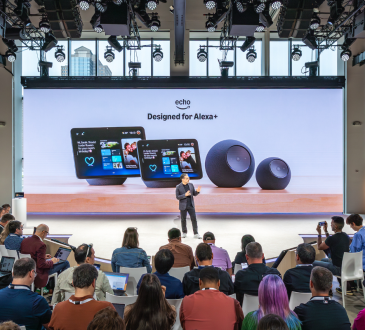Tencent Said to Hire Top OpenAI Researcher in Bid to Boost AI Efforts

Chinese technology giant Tencent has hired a top researcher away from OpenAI, one of the world’s largest nonprofit AI research institutions, as companies in the country compete increasingly for global talent. The hiring, which has been making the rounds in both Chinese and international tech circles, underscores Tencent’s concerted effort to build its business around a rapidly evolving field of artificial intelligence known as generative AI.
A Strategic Talent Acquisition
The person who left is a widely respected OpenAI researcher with deep experience in large language models and machine learning infrastructure, people familiar with the matter said. Although neither Tencent nor OpenAI has yet publicly confirmed the name of the researcher, industry insiders say it is a major catch for Tencent.
The hiring comes at a time when tech giants across the world have been aggressively poaching top AI scientists that can fuel advancements in:
- Natural language processing
- Computer vision
- Training of massive AI models
The fact that Tencent is able to attract these kinds of talent bodes well for its ability and willingness to invest heavily in fundamental AI research, as opposed to pushing existing technology down into consumer products.
Tencent’s Expanding AI Strategy
Tencent, known overseas for WeChat and its large collection of games, has ramped up AI investment over the past decade. The company has several specialised AI units, including:
- Tencent AI Lab
- YouTu Lab
These units work on everything from:
- Speech recognition
- Natural language understanding
- Self-driving cars
- Computer graphics
OpenAI’s ChatGPT and similar systems have been hugely successful, and interest in large language models has taken the world by storm. Tencent has also stepped up its own R&D in this domain. Earlier this year, the company announced internal efforts to develop ChatGPT-style applications and tools optimized for the Chinese market.
Hiring a researcher with experience on the frontier of OpenAI’s top-of-the-line models provides Tencent with both technical expertise and advanced research methodology.
Global Competition for AI Talent
The shift also reflects the intensifying battle for AI talent worldwide. Other companies, including:
- Microsoft
- Amazon
- Meta
…are locked in a pitched battle over hiring the most intelligent minds in AI. The great power competition is shaping up to be just as fierce among China’s corporations — from Tencent to Alibaba and Baidu — all aiming to become leaders in generative AI.
By hiring an experienced OpenAI researcher, Tencent gains not just a skilled employee but also someone who can communicate best practices for the training and scaling of large models. This knowledge can guide the company through hurdles such as:
- Optimizing computing resources
- Reducing training costs
- Addressing ethical issues related to AI deployment
Possible Impact on Tencent’s Offerings
The ripple effects from this hiring extend throughout Tencent’s sprawling empire:
- WeChat: Smarter chatbots, instant translation, personalized newsfeed recommendations
- Gaming: Improved NPC behavior, dynamic storylines, immersive virtual worlds
- Cloud services: Better AI infrastructure, enhanced competitiveness with global providers
Tencent also has stakes in several foreign gaming and technology companies, meaning innovations produced in its AI labs could impact a broad network of global partners, including game developers and social media platforms.
Challenges and Considerations
It’s not all upside for Tencent. Technology transfer across borders is under intense scrutiny, especially between the US and China. AI is considered a strategic technology, and governments are sensitive to:
- Protection of intellectual property
- National security concerns
The researcher will also need to navigate intellectual property contracts and confidentiality obligations from their previous role at OpenAI. While expertise and general knowledge can transfer, proprietary information or code cannot legally be imported to Tencent. Adhering to these legal and ethical boundaries will be essential.
Significance for OpenAI
The exit of a top researcher highlights how cutthroat the AI talent market has become. OpenAI has expanded rapidly and gained worldwide recognition, but its scientists are in high demand.
Keeping talent has become increasingly difficult as big corporations and well-funded startups offer:
- Attractive salaries
- Opportunities to work on large-scale projects
Even so, OpenAI remains a magnet for top-tier researchers, and the loss of a single researcher is unlikely to derail its ambitious roadmap. Still, it underscores the importance of developing and retaining skilled teams in a field where expertise is scarce.
Broader Implications
The hiring signals a larger dynamic: the globalization of AI research and the cross-pollination of talent across borders. While geopolitical tensions can pose challenges, science and technology remain inherently global. Researchers move from institute to institute and across countries, carrying their knowledge and philosophies with them.
China’s quest for global AI leadership is part of a national strategy aimed at attracting the best AI talent worldwide. For companies like Tencent, such hires are not just about filling roles—they are about positioning themselves at the forefront of transformative technology.
Looking Ahead
As Tencent incorporates this leading OpenAI researcher into its ranks, industry-watchers will be monitoring for:
- New projects or product rollouts demonstrating sophisticated AI capabilities
- Advances in natural language interfaces
- Creative content generation
- AI-powered analytics
Potential developments include collaborations with academia, the introduction of new AI platforms, or even Tencent’s own large language model for Chinese and global markets. Whatever the results, one message is clear: Tencent aims to be a major player in the next chapter of artificial intelligence.




